THIS WORKS THE SAME as it did last year. The list includes all the books I read in 2017 (unless I forgot one or two), and each entry has a brief synopsis to give you an inkling for how I feel about it. If the title and author of the book are bold and in italics, that means I recommend the book. If not, either I didn’t like the book or I don’t feel it is accessible enough to recommend to everyone. The synopsis should clarify this. Here we go.
nonfiction
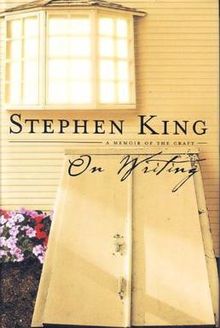
- On Writing: A Memoir of the Craft — (Stephen King)
- This is an oft-touted work that is simultaneously a sort of autobiography and a how-to on the craft of writing. I admit, I read it far later than I should have. It’s very good, and I recommend it to writers or aspiring writers, but I haven’t bolded or italicized this one because it isn’t the best work on writing I read this year. And, frankly, like all how-to works, this one is a mixed bag of advice, IMO.
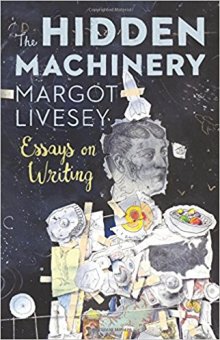
- The Hidden Machinery: Essays on Writing — (Margot Livesey)
-
- Ok, this one is the best book on writing that I read this year. Livesey confines herself to very strict goals in her essays, a very limited scope or theme in each one, and this really serves to make her advice more easily digestible (if not easily followed… writing is difficult). If writing is your thing, check this one out for sure.
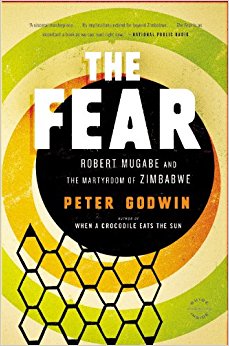
- The Fear: Robert Mugabe and the Martyrdom of Zimbabwe — (Peter Godwin)
-
- The Fear is a tale that centers around author Peter Godwin, a journalist, returning to his home country of Zimbabwe after Robert Mugabe lost his first election in 30 years in 2008. A harrowing story of corruption, violence, and confusion, this book is even more relevant now that Mugabe has been ousted.
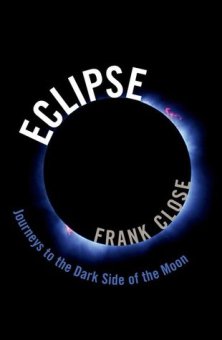
- Eclipse: Journey to the Dark Side of the Moon — (Frank Close)
- In light of the eclipse that saw totality track across the United States in 2017, Frank Close (an eclipse chaser) wrote this book to describe the allure of the phenomenon and to encourage others to chase totality as well. It’s a good book, partly a memoir of his adventures chasing eclipses and partly a science-y breakdown of an eclipse’s mechanics. However, it felt a little too in-between for me, as if the book (and author) was not sure what it wanted to be.

- The Riddle of the Labyrinth: The Quest to Crack an Ancient Code — (Margalit Fox)
-
- Margalit Fox hits gold with this one. She details the unraveling of the ancient Linear B script, which was a triumph of the twentieth century. Not only that, but she honors both Michael Ventris (the eventual code-cracker) and Alice Kober (the somewhat unsung hero whose meticulous, almost obsessive work made the solution possible). Treat yourself to a well-written historical tale while simultaneously learning the intricacies of the Linear B problem and its elegant solution.
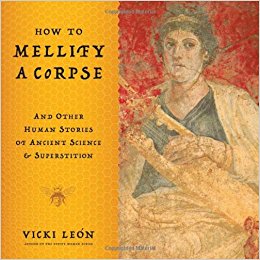
- How to Mellify a Corpse: and Other Human Stories of Ancient Science and Superstition — (Vicki León)
- León tries to weave together a raucous romp through history with her unique humor, but frankly I’m not so sure it works. The idea was very good, and seemed right up my alley with topics like ancient mechanical engineering, Pythagoras and his mathematical discoveries and odd quirks of habit, and much more. However, the book simply isn’t as interesting (or as much of a page-turner) as the title would suggest.
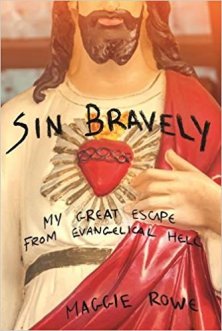
- Sin Bravely: My Great Escape from Evangelical Hell — (Maggie Rowe)
-
- Maggie Rowe used to have a problem worrying, obsessively (like, clinically obsessively) about going to hell. This is her raw, personal story of spending time in a Christian mental health facility and, eventually, overcoming that fear. It is a brave work that anyone who identifies, or has ever identified, as an Evangelical should read.
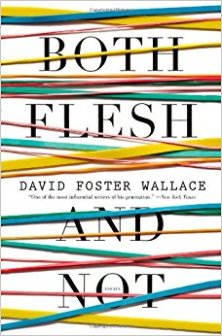
- Both Flesh and Not: Essays — (David Foster Wallace)
-
- I agree with some reviewers that this posthumous collection of previously unpublished Wallace essays suffers from the usual posthumous malady: these pieces were never intended by the author to go together, and they sometimes feel odd at the seams. However, I mean… it’s David Foster Wallace.
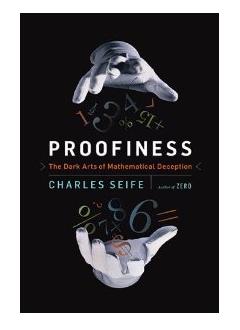
- Proofiness: The Dark Arts of Mathematical Deception — (Charles Seife)
- This is an interesting analysis of the way in which modern media uses numbers unscrupulously to promote whatever idea they want viewers to believe. It’s a look at the way the human mind treats numbers and a primer against being taken in by faulty or misrepresented mathematics. This is very important in the modern age, and Seife does a serviceable job explaining these things, but the book does suffer somewhat from its position between popular nonfiction and academic work. If this stuff interests you, you’re probably going to gravitate toward more dense works.
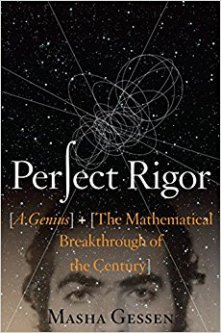
- Perfect Rigor: A Genius and the Mathematical Breakthrough of the Century — (Masha Gessen)
-
- Perfect Rigor tells the story of Grigori Perelman, who in 2006 solved the Poincare Conjecture (a topological problem so complex that I don’t even understand its question, much less its solution). The PC remained unsolved for more than a century and was thought by some to be literally unsolvable. After Perelman solved the problem, he refused the one million dollar prize and became somewhat of a recluse. Perfect Rigor details, with clarity and with the appropriate amount of compassion, his early life in Russia’s mathematical schools as well as his eventual solving of the PC. None of this synopsis gives justice to how interesting the book is. I couldn’t put it down.
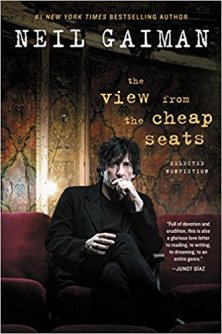
- The View from the Cheap Seats: Selected Nonfiction — (Neil Gaiman)
- Alright, this is blasphemous, but I didn’t really enjoy this collection from Gaiman. Maybe I’m souring on his style, or maybe the stories and essays felt too mashed together and incompatible… I don’t know.
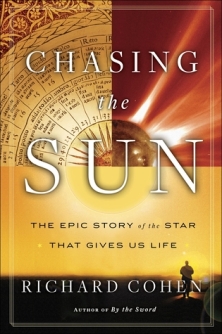
- Chasing the Sun: the Epic Story of the Star That Gives Us Life — (Richard Cohen)
-
- I’ve never read Cohen before, but I plan on reading more of his work after this. Chasing the Sun is perhaps my BEST BOOK OF THE YEAR, though I have trouble declaring such superlatives. The book is the culmination of eight years of research and covers the sun’s influence in science, physics, art, food, culture, clothing, music, etc. etc. etc. I cannot recommend this book enough.
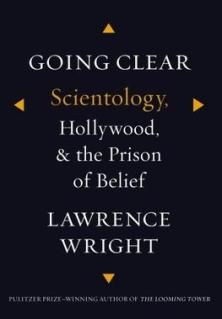
- Going Clear: Scientology, Hollywood, and the Prison of Belief — (Lawrence Wright)
-
- It’s been in the news a lot lately, but guys: Scientology is weird and bad and you should stay away from it. This is an excellent analysis of the “religion’s” history and philosophy. Check it out.
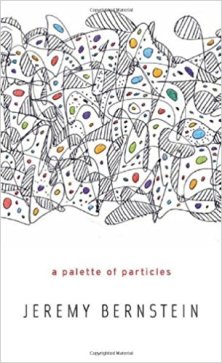
- A Palette of Particles — (Jeremy Bernstein)
- This short book is an interesting primer on particle physics and its history, but I think it suffers from a few fatal flaws. First, it’s too short to cover anything in the sort of depth that something as complex as particle physics requires. Also, its diction is too academic for the book’s goal. If the diction is right for you, you probably already know what’s in the book and don’t need to read it. The book also seems unsure of what it wants to be: historical analysis, physics textbook/primer, memoir, etc.
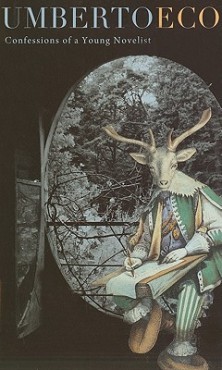
- Confessions of a Young Novelist — (Umberto Eco)
- Eco is very hit-or-miss for me, and in this short work he misses the mark. The idea behind the book is to combine a few “confessions,” essays, and speeches made by Eco over the years regarding his thoughts on the craft of writing. However, I find much of Eco’s thoughts too, dare I say, pretentious. Of course, he’s a genius. But there is too much self-congratulation in the work, too much self-praise. Perhaps in his native Italian it comes off as more explanatory, but in the translation he seems more concerned with showing his genius.
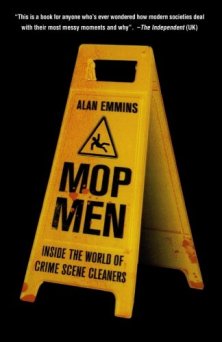
- Mop Men: Inside the World of Crime Scene Cleaners — (Alan Emmins)
-
- This one is very straightforward. Emmins spends time with the professionals who clean crime scenes (and, yes, it does get gory and gross at times) and details his experiences. There’s a complicated man at the center of the business, and I’m not sure how I feel about Emmins’ portrayal of him, but nevertheless the book retains interest well and shows the reader a rarely-glimpsed corner of society.
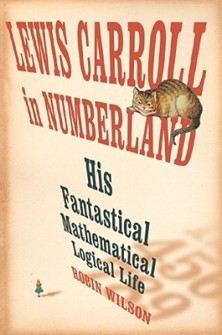
- Lewis Carroll in Numberland: His Fantastical Mathematical Logical Life: An Agony in Eight Fits — (Robin J. Wilson)
-
- Don’t let the title scare you off. This is another contender for BOOK OF THE YEAR for me. Incredibly accessible and incredibly fun, this work details the life of Carroll in a compassionate manner. Don’t believe the rumors of Carroll’s odd behavior around kids, this well-researched book says. Instead, let Wilson show you Carroll as he was: a brilliant, loving man who made great strides in both mathematics and literature and who is every bit as interesting as his zany characters.
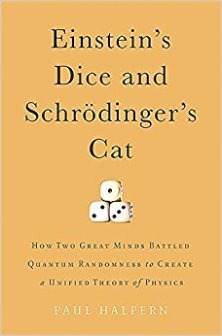
- Einstein’s Dice and Schrödinger’s Cat: How Two Great Minds Battled Quantum Randomness to Create a Unified Theory of Physics — (Paul Halpern)
-
- On the back of the recent confirmation of the Higgs Boson, Halpern details the story of Einstein and Schrödinger and their quest to arrive at a Grand Unified Theory of physics that eschewed the random dice in Einstein’s famous quip. The book does not shy away from these controversial characters and is a delight to read for anyone interested in physics who, like me, is worse than a layman.
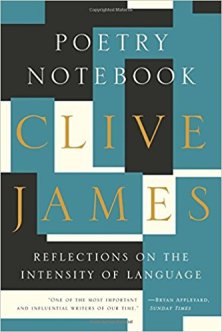
- Poetry Notebook: Reflections on the Intensity of Language — (Clive James)
-
- An unbelievably well-thought-out catalog of the poetic arsenal, James’ book has given me much to think about regarding my own use of language in my writing. A must-read for writers of all shades.
poetry
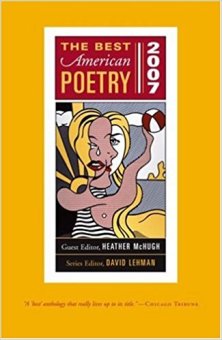
- The Best American Poetry 2007 — (ed. Heather McHugh)
- I have to say, with a sigh, that almost all poetry collections are going to go unrecommended from me. There are gems in all of them, but alas, there are far too many that seem like linguistic masturbation. With poetry, usually, the key is to find a poet you love rather than a hodgepodge of poems.
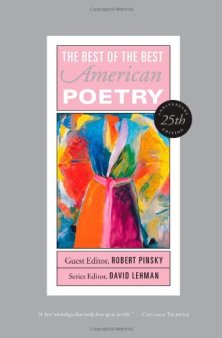
- Best of the Best American Poetry — (ed. Robert Pinsky)
- See above comments.
fiction
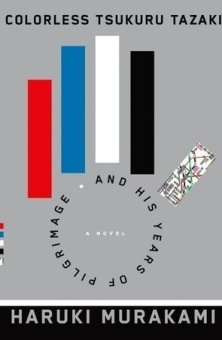
- Colorless Tsukuru Tazaki and His Years of Pilgrimage — (Haruki Murakami)
- This was, I think, my first Murakami book, and I was not impressed. Though perhaps the translation can be blamed, the language seemed dead and detached. The titular Tazaki seemed by turns foolish, pitiable, and evil, and the plot itself seemed disjointed and odd in an unintended way.
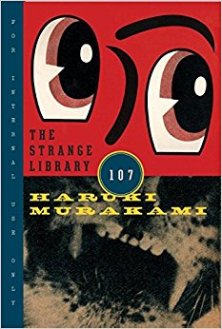
- The Strange Library — (Haruki Murakami)
This is what I imagined Murakami to be after hearing his praises for years. Here, he seems like a master of language subtly crafting a story that is bizarre and, well, strange in ways that seem utterly intended. He maps a dream world that often doesn’t make sense, but it’s not about the making-sense. It’s about the feel of the thing, and Murakami is writing a concerto for the way dreams/nightmares feel. Highly recommend.
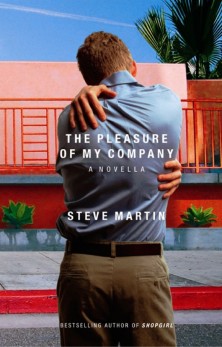
- The Pleasure of My Company — (Steve Martin)
-
- Yes, that Steve Martin. Honestly, he has no right to be this good at writing. He’s already had a great comedy career and is super into art or whatever. Leave some for the rest of us, Steve. (If you’re interested, his novella is about a man with clear OCD issues overcoming all of his harmful obsessions to fully realize himself, and it’s damn good).
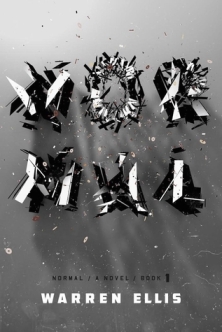
- Normal — (Warren Ellis)
- This one is tough. Warren Ellis is a legendary figure on the comics front, but this is my first foray into his novels. Normal is… anything but. It’s weird and philosophical, insular and kind of oddly stilted and compressed in its scope. The story of a man who previously worked for the government being placed in a sort of camp or secluded retreat (involuntarily), Normal goes to weird places and waxes philosophical about the future of humanity. It’s very good, but I’d reserve a recommendation only for those who are familiar with Ellis’ previous work. It feels very much of a piece with Transmetropolitan.
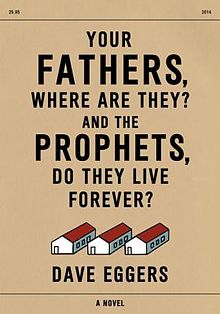
- Your Fathers, Where Are They? And the Prophets, Do They Live Forever? — (Dave Eggers)
-
- 2017 was, it seems, a year of firsts for me. This, my first Eggers book, is a story told entirely in dialogue that features a man who decides to kidnap an old classmate of his who became an astronaut. From there, it only gets weirder, but Eggers manages to make the plot seem somehow reasonable and human.
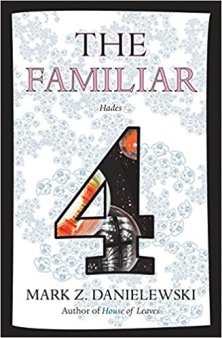
- The Familiar, Vol. 4: Hades — (Mark Z. Danielewski)
-
- Danielewski continues his 20-some-part epic about a young girl, her cat, and her city. This volume returned to a slower pace, but it was still incredibly readable and enjoyable. If you haven’t started the series yet, get on it. It represents, for me, a return to form for MZD.
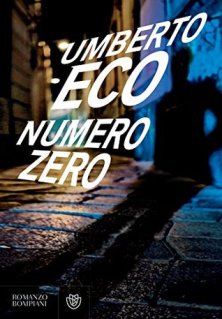
- Numero zero — (Umberto Eco)
- I said earlier that Eco is hit-or-miss for me, but this one is somewhere in between. Extremely short by Eco standards, Numero zero has some truly interesting and mind-bending ideas and historical puzzles, but it ultimately falls flat in its plot and remains forgettable. I’m having trouble remembering a lot of it, which does not bode well for a recommendation.
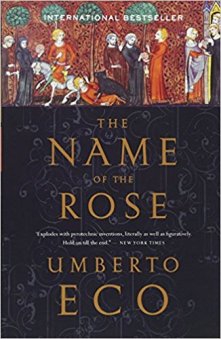
- The Name of the Rose — (Umberto Eco)
-
- This book, with which Eco originally burst onto the authorial scene, is simply a masterpiece. A mystery set in an ancient monastery, the level of detail and complexity is staggering. It’s a thinking person’s thriller, a page-turning dissertation on medieval life. It’s a lot of things, and one of them is “good.”
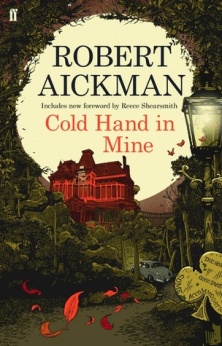
- Cold Hand in Mine: Strange Stories — (Robert Aickman)
-
- Lent to me by a friend, this collection was my introduction to Aickman. He is a master of the craft and weaves unsettling tales better than pretty much anyone I’ve read. From a strange hotel from which guests cannot leave to creature-horror set in a European castle’s lake, this collection shows Aickman at what I can only assume is his best.
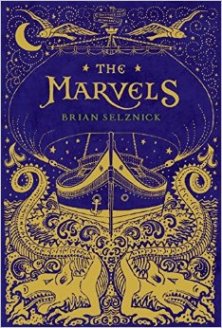
- The Marvels — (Brian Selznick)
-
- Selznick is the award-winning author/illustrator of The Invention of Hugo Cabret, and he returns to the same kind of half-written, half-drawn storytelling M.O. in this book. For my money, though, The Marvels is more intense, more emotionally gripping, and an all-around better book. Selznick deserves all the praise and awards he’s earned.
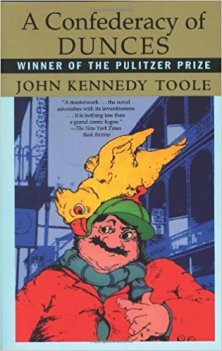
- A Confederacy of Dunces — (John Kennedy Toole)
-
- A classic, this book was one I had never read until this year. More’s the pity. It is hilarious, snide, cutting, interesting; its characters seem real and fleshed-out; its plot moves along steadily, retaining interest. Though it does flag a bit at the end, the novel is a work of art that I think everyone should read at least once. Practically every sentence drips with sarcasm, and I believe I actually laughed aloud while reading it.
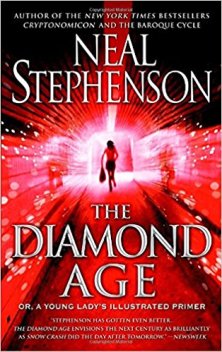
- The Diamond Age: Or, a Young Lady’s Illustrated Primer — (Neal Stephenson)
-
- This was originally suggested to me by Hugh Howey, who cites it as one of his favorites of Stephenson’s. I tried to start it a few years ago and got bored, but now I don’t understand how that was possible. The book features Stephenson (who is probably my favorite extant sci-fi writer) at his world-building best. The tech and geopolitical realities are superbly wrought. Though, as usual, Stephenson seems not to care about wrapping up his stories and resorts to Deus Ex Machina type devices to end things, the novel is still excellent and provides an interesting commentary on ideas like the education system, politics, the speed of technological advancement, and more.
graphic novels
- SAGA, vol. 4 and 5 — (Brian K. Vaughan and Fiona Staples)
-
- I mentioned this last year when I started SAGA. It’s a wildly cool story about interspecies war and love, childhood, parenthood, kindness among strangers, meaning in the universe, etc. Expertly written, its equally stunning visuals are drawn by Staples at the absolute height of her power. Do not miss out on these works.
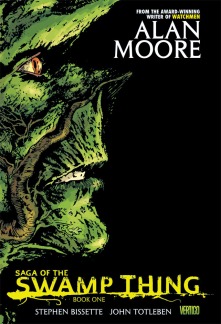
- Swamp Thing, Vol. 1-6 — (Alan Moore’s run; with John Totleben and Steve Bissette)
-
- I’ve been a fan of Moore since his Watchmen brought me into graphic novels and comics (I know, I know, so original, Mike). I own Watchmen, V for Vendetta, and some of his League of Extraordinary Gentlemen work, but this is my first time reading his highly acclaimed run on Swamp Thing. Needless to say, it’s a work of staggering genius. Moore may be a weird dude, but as a writer he is nearly unrivaled.
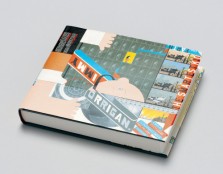
- Jimmy Corrigan: The Smartest Kid on Earth — (Chris Ware)
-
- Okay, so I recommend this one, but only as long as you go into it knowing that it’s unbelievably depressing. That said, it’s a monument to the struggles of the average modern man and is at times poignant and emotionally cathartic. We pull for Jimmy; we weep for Jimmy. We are Jimmy. It’s just… Jimmy’s very sad.
bonus book I didn’t know how to categorize
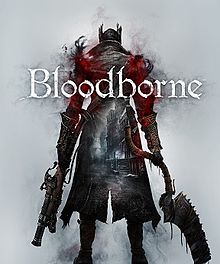
- The Paleblood Hunt — (Redgrave)
-
- Just as last year featured the genre-bending work “Darths and Droids,” so this year features a “book” that many might say doesn’t belong on a list of this nature. The Paleblood Hunt is kind of a blend of scholarly work and fan fiction. It’s author, a man whose online alias is Redgrave, is one of the leading lore historians in the Bloodborne community (yes, yes, the video game). The Paleblood Hunt is his synopsis of Bloodborne’s often obscure and difficult to parse story, and for my money it is the best working theory of the game out there. The length of a novella, TPH should be required reading for anyone playing the game who wishes to join the greater lore community.



